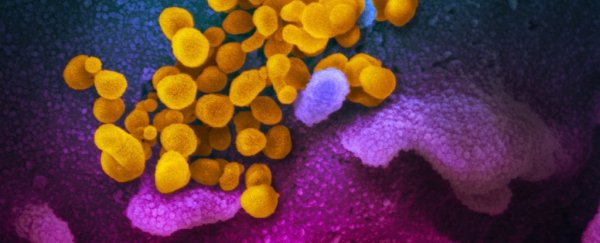At least 70 potential coronavirus vaccines are currently in development, with 3 already in clinical trials, according to the World Health Organisation.
WHO published an updated list of vaccine efforts on April 11, showing a vast array of companies pursuing shots that could halt the coronavirus. Bloomberg News reported on the document earlier.
As the virus continues to spread, infecting more than 1.9 million people and killing more than 110,000 worldwide, researchers have been racing to develop vaccines.
Those research efforts involve a range of organisations, from pharmaceutical giants and tiny biotech companies to academic centres and nonprofit groups.
Developing a new vaccine is typically an expensive, complicated and lengthy process, requiring hundreds of millions of dollars and years of testing to determine whether a vaccine is safe and effective.
While this current pandemic is the third coronavirus outbreak of the 21st century – the first two being SARS and MERS – there still aren't any approved vaccines for coronaviruses.
Drugmakers and health officials have been hoping to significantly cut down those timelines in response to the severity of the current situation.
Chinese biotech company CanSino is already working on phase two of human trials for its experimental vaccine, while US-based biotech startups Inovio Pharmaceuticals and Moderna have both begun human testing.
Large corporations like Johnson & Johnson and Sanofi are also sprinting to develop vaccines.
Anthony Fauci, director of the US National Institute of Allergy and Infectious Diseases, said the US is still at least 12 to 18 months away from seeing a coronavirus vaccine, and some experts have warned that even trying to hit that deadline is a risky plan that could backfire.
"When Dr. Fauci said 12 to 18 months, I thought that was ridiculously optimistic," Paul Offit, the co-inventor of the rotavirus vaccine in the late 1990s, told CNN. "And I'm sure he did, too."
New vaccines are generally required to be tested first in a lab, then in animals, and then among a small group of people for safety before they're finally tested in larger groups to see if they can prevent a disease.
But experts are concerned that bypassing any of those steps in order to get a vaccine approved risks leading to "immune enhancement," where a vaccine actually weakens a person's response to the virus.
"The way you reduce that risk is first you show it does not occur in laboratory animals," Peter Hotez, dean of the National School of Tropical Medicine at Baylor College of Medicine, told Reuters.
But in the rush to find a vaccine for the coronavirus, some drugmakers are skipping animal trials, Stat News reported.
"I understand the importance of accelerating timelines for vaccines in general, but from everything I know, this is not the vaccine to be doing it with," Hotez said.
Andrew Dunn and Bill Bostock contributed reporting to this story.
This article was originally published by Business Insider.
More from Business Insider:
